The chemical components of the stinking grass (pig dung) are important in the preparation of medicinal herbs, and are used by people to treat many diseases. However, this medicinal herb can accumulate toxins, so it is necessary to know how to use it to ensure safety.
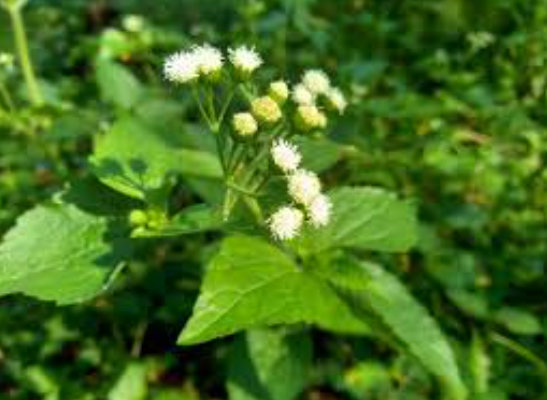
Stinking grass (pig dung) has the effect of curing many diseases - Illustration photo
Stinging nettle can help cure many diseases
Doctor Quach Tuan Vinh, member of the Executive Committee of the Hanoi Oriental Medicine Association, said that the stinking grass (ageratum conyzoides), also known as five-color, grows wild in many places. It is a medicinal herb widely used in folk medicine to treat many diseases thanks to its anti-inflammatory, pain-relieving, antibacterial, and antifungal effects.
Modern research shows that the chemical components of the pigweed plant are important in the preparation of medicinal herbs: essential oil; saponin; caryophllene; ancoloid; demethoxygeratocromen; cadinne; fumaric acid; phenol; quercetin; coumarins; resins; tanins; kaempferol; charomones; caffeic acid...
The stinking grass has medicinal uses in both traditional and modern medicine. According to traditional medicine, stinking grass is cool, spicy, slightly bitter, has the effect of cooling, detoxifying, preventing bleeding, swelling, and is used in the treatment of acne; sore throat; menorrhagia; postpartum hemorrhage; urinary stones; sinusitis; bone and joint pain; rheumatism. How to use:
- Treatment of sinusitis and allergic rhinitis : Stinging nettle is widely used in folk medicine to treat upper respiratory tract infections such as sinusitis and allergic rhinitis.
The anti-inflammatory and anti-allergic compounds in the plant help reduce swelling, pain and clear nasal passages.
How to use : Use fresh by washing the leaves, crushing them and squeezing out the juice. Drop 1-2 drops into each nostril to help reduce nasal congestion and sinus pain; Nasal steaming: Use fresh plants boiled with water and use the steam to steam into the nasal area to help clear the nose, reduce swelling and push mucus out.
- Treatment of skin diseases, skin fungus, dermatitis : Stinging nettle has good antibacterial and antifungal properties, especially for skin diseases caused by bacterial or fungal infections such as dermatitis, nail fungus, and athlete's foot.
Studies show that extracts from the herb have the ability to resist many types of pathogenic bacteria and fungi, especially strains of Staphylococcus aureus (staphylococcus) and Candida albicans (fungus).
How to use: Apply externally by washing the leaves, crushing them and applying to the infected or fungal skin area. Keep for about 15-20 minutes, then rinse with clean water. Can be done 2-3 times/day until symptoms subside.
Supportive drink: To increase treatment effectiveness and prevent reinfection, you can combine using a decoction of pigweed with a low dose.
- Pain relief and anti-inflammatory : Stinging nettle contains compounds that have pain-relieving and anti-inflammatory effects, which are beneficial in treating pain, arthritis and muscle pain. These compounds work by inhibiting inflammatory enzymes, thereby reducing swelling and pain.
Research in Brazil shows that extracts from the pigweed plant are effective in reducing pain and inflammation in animal models of arthritis.
How to use: You can boil the water to drink by using 10-15g of dried plant, boil with water and drink 1-2 times a day. This method helps reduce pain, reduce inflammation in joint diseases and muscle pain. Or use fresh crushed leaves to apply externally, apply on inflamed joints or painful muscles to reduce swelling and pain.
- Supports treatment of digestive diseases : Stinging nettle is also used to support treatment of digestive diseases, including bloating, indigestion and intestinal infections.
Use by Decoction: Use 10g of dried plant or about 20g of fresh plant, decoct to get water to drink, use 2-3 times/day to reduce symptoms of digestive disorders.
- Reduce chronic diseases: Flavonoids and polyphenols in the pigweed plant have strong antioxidant properties, helping to protect cells from free radical attacks, reducing the risk of chronic diseases such as cancer, diabetes and cardiovascular disease.
Studies show that extracts from the pigweed plant can reduce oxidation in the body, protect cells from damage and reduce the risk of chronic diseases.
Can be used by drinking the decoction from the plant to increase antioxidant capacity, helping to protect health.
- Otitis media: Crush this herb and take the juice, drop 1-2 drops into the ear, 4 times/day.
- Rheumatism, sprains: Take fresh skunk cabbage, wash it, add rice and salt, roast it and grind it finely. Use this powder to apply to the swollen joint area, use a bandage to keep it for 1-2 hours then remove the bandage. Use 2-3 times a day to achieve effectiveness.
- Sore throat: Wash and crush the leaves of the plant. Take the juice and add a little sugar to make it easier to drink. Use 3 times a day to effectively treat sore throat.
- Hair care: Crush fresh leaves of the stinking grass and use this mixture to wash your hair. Use a cloth to cover it for about 2-3 hours and then wash it off with clean water. Using this method regularly can help you have fragrant, smooth, dandruff-free hair.
- Treat fever: Use boiled grass roots to get water to drink 2-3 times a day to reduce fever.
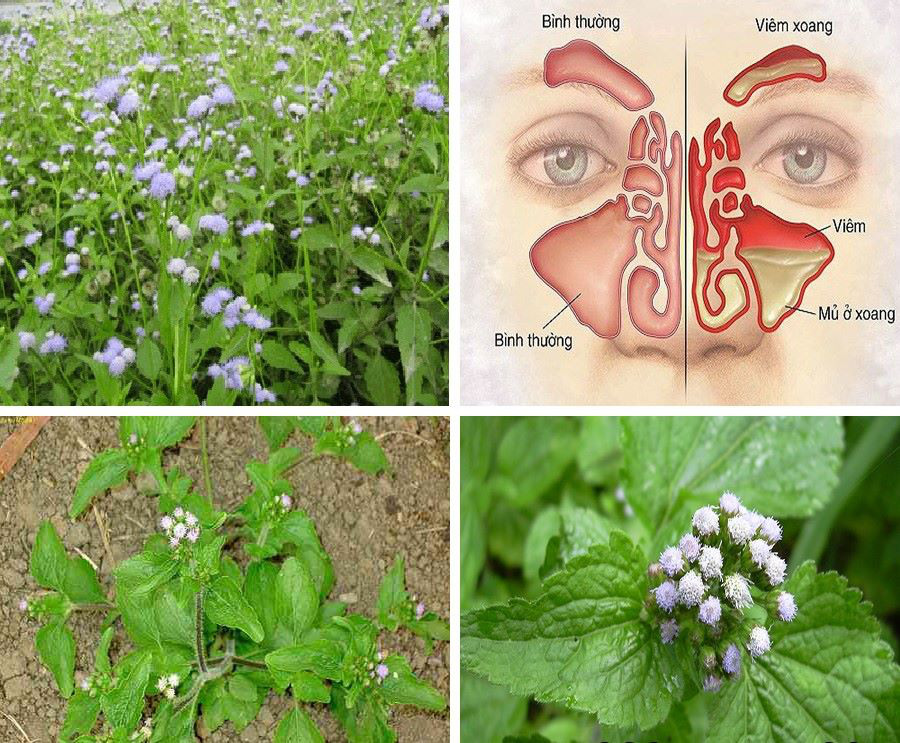
Folklore often uses the stinking grass plant to treat sinusitis - Illustration photo
Use correctly to ensure safety
Doctor Quach Tuan Vinh recommends that although the stinking grass plant has many medicinal uses, it is necessary to pay attention to some points to ensure safety and effectiveness when using it:
- Short term use : Stinging nettle can cause some toxic accumulation if used for a long time. It should only be used for about 1-2 weeks until symptoms subside and should not be used continuously for a long time.
- Not for use by pregnant and lactating women : There is not enough research on the safety of this plant in pregnant and breastfeeding women, so it is best to avoid using it to be safe.
- Use with caution in children : Children have sensitive bodies, so you should consult a specialist before using pennywort for children, especially for children under 5 years old.
- Interaction with western medicine : If you are taking medication, especially anti-inflammatory and pain relievers, be careful when using pennywort because drug interactions can occur, increasing or decreasing the effectiveness of Western medicine.
- Allergic reactions : Some people may be allergic to the plant, causing itching, rash or difficulty breathing. If signs of an allergic reaction occur, discontinue use immediately and consult a doctor.
The stinking grass is a herb with many uses in treating diseases, especially sinusitis, skin diseases, aches and pains, and aiding digestion...
However, to ensure safety, users should adhere to the appropriate dosage, not use it long-term and should consult a doctor or traditional medicine specialist when using it for special subjects such as pregnant women and children.
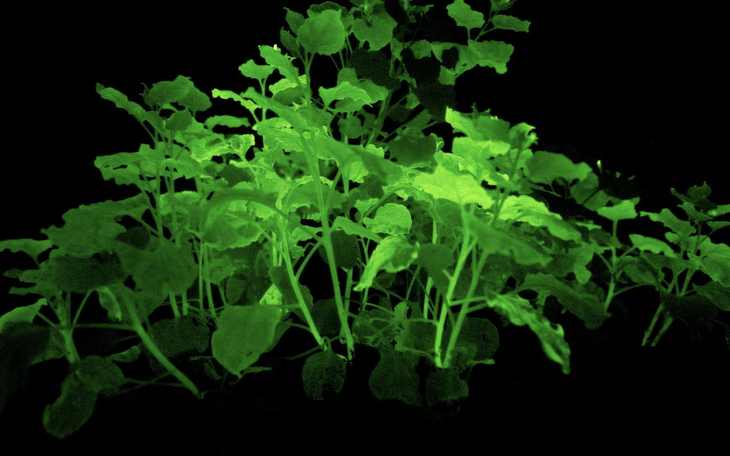 'Living light garden' from genetically modified plants
'Living light garden' from genetically modified plantsSource: https://tuoitre.vn/cay-co-hoi-chua-nhieu-benh-nhung-can-dung-cho-dung-de-dam-bao-an-toan-202411270744213.htm







![[Photo] Thousands of Buddhists wait to worship Buddha's relics in Binh Chanh district](https://vstatic.vietnam.vn/vietnam/resource/IMAGE/2025/5/3/e25a3fc76a6b41a5ac5ddb93627f4a7a)





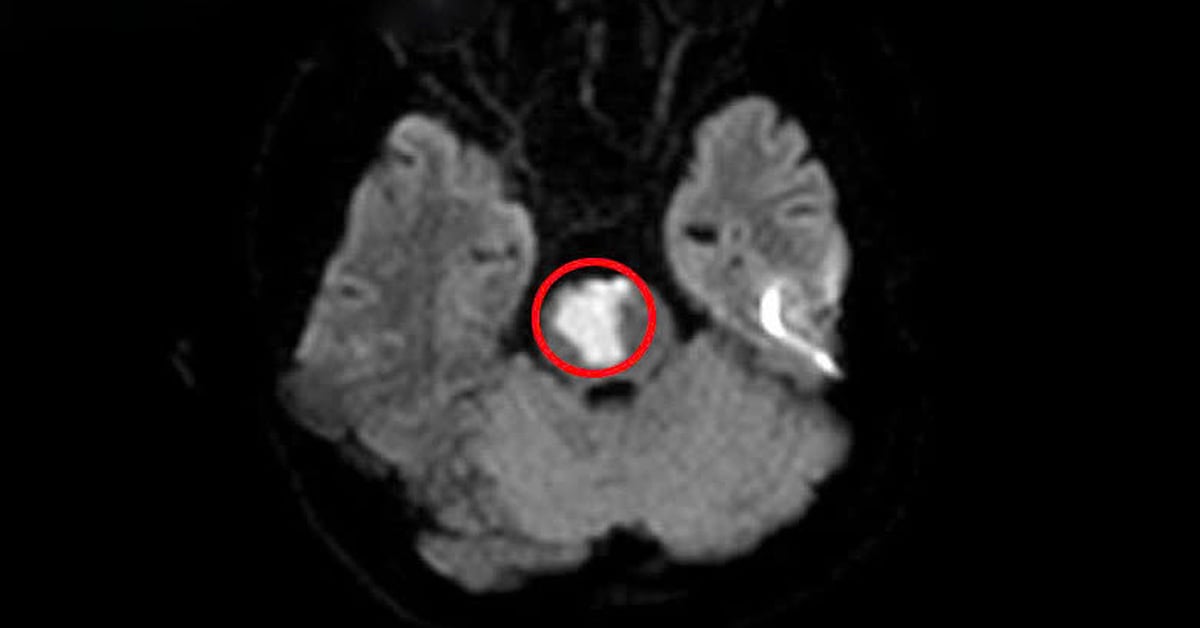


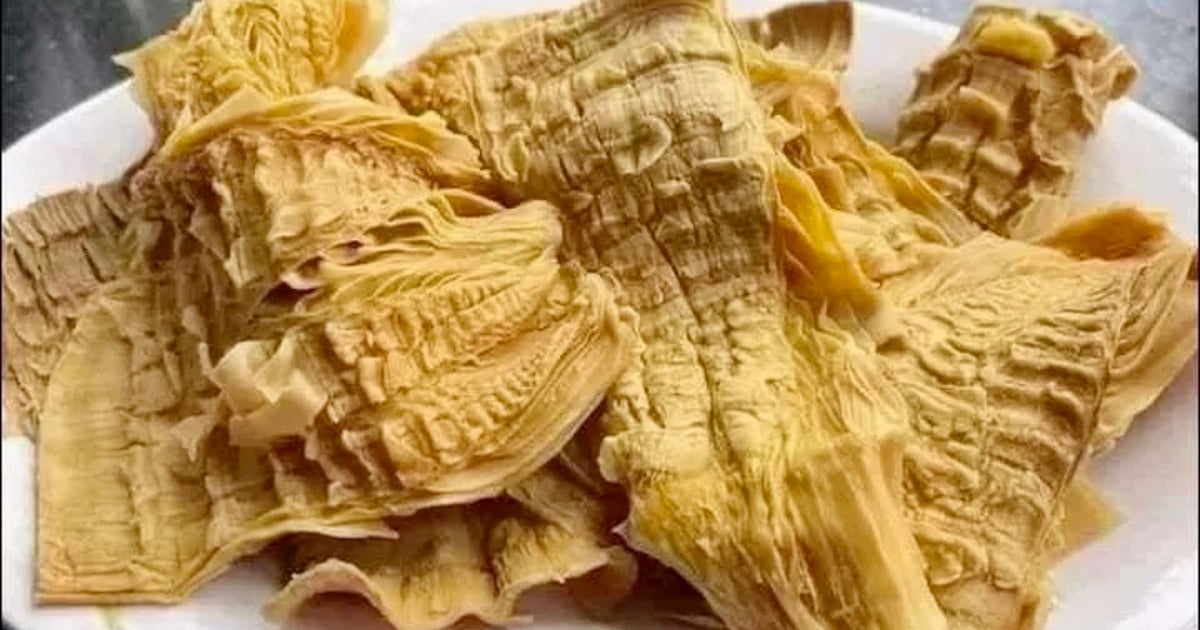



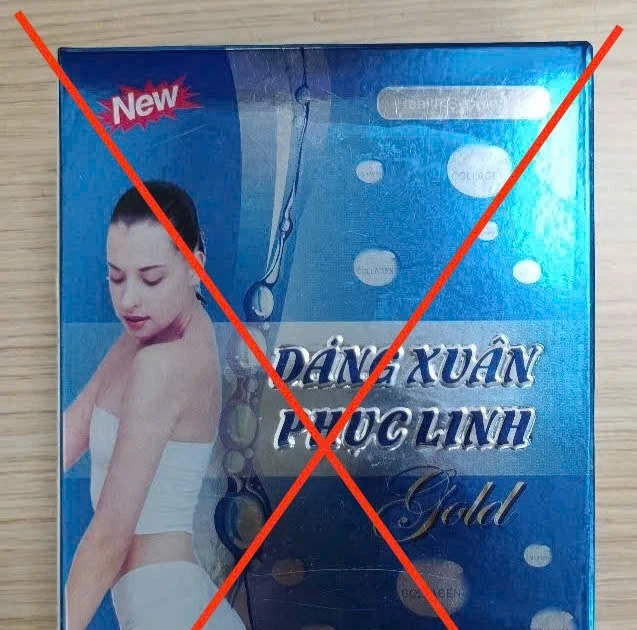
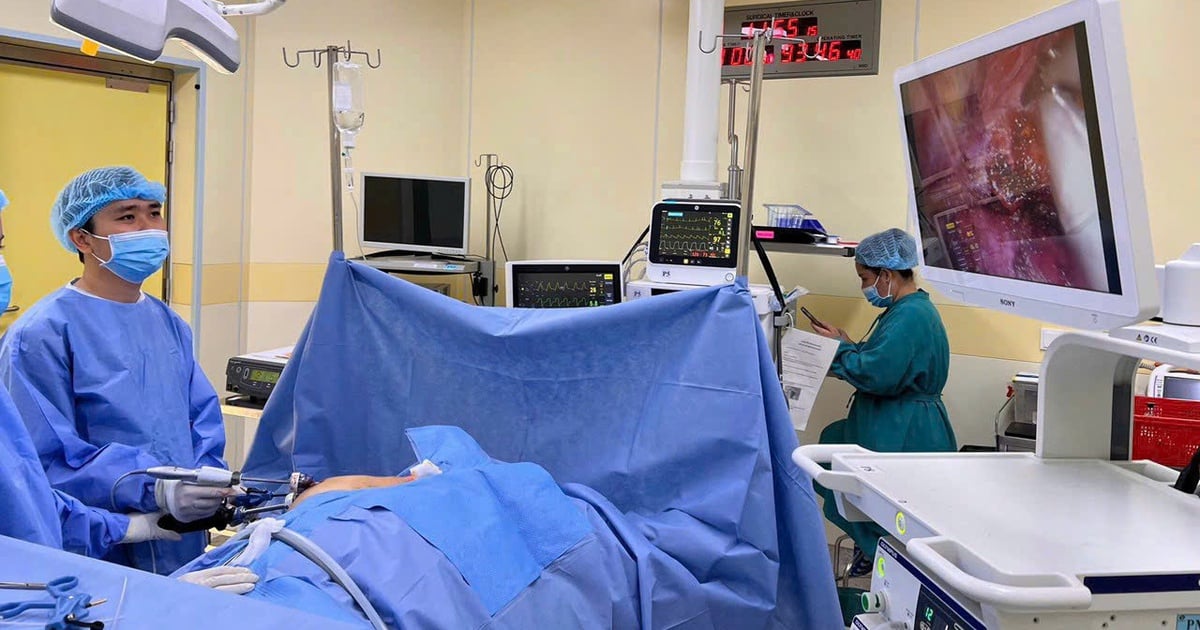
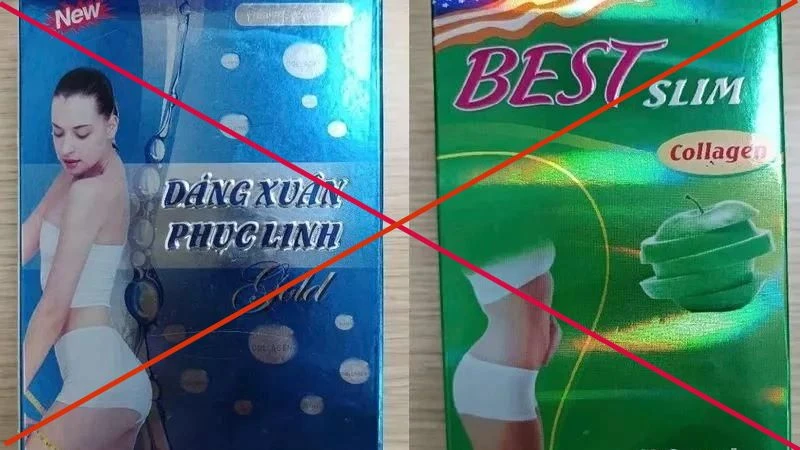
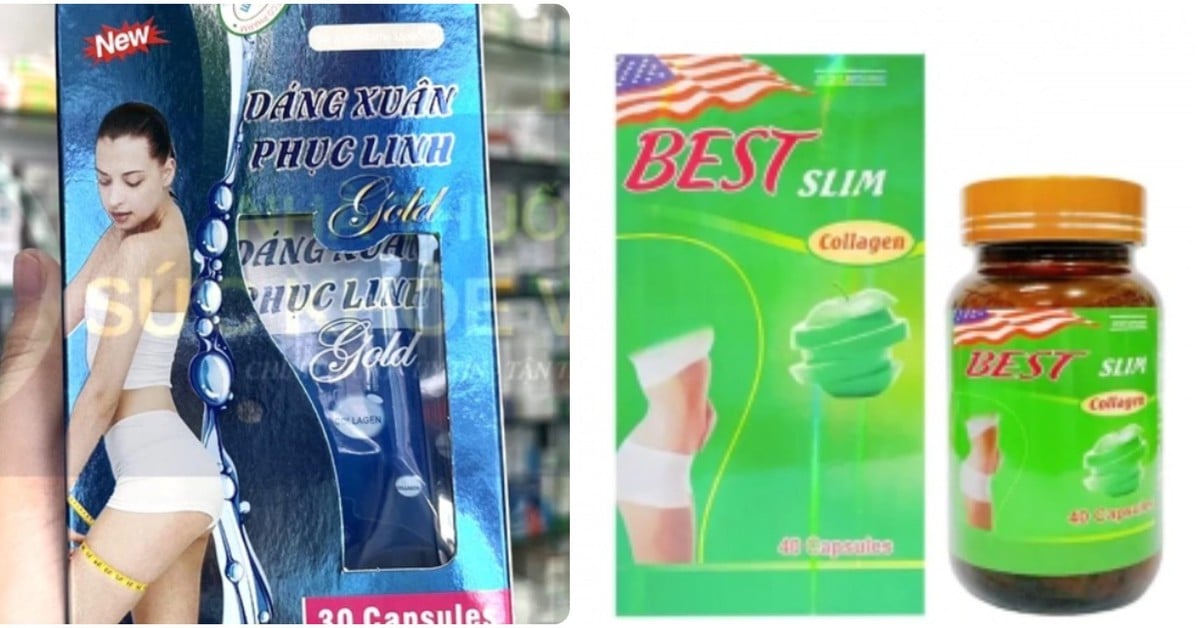








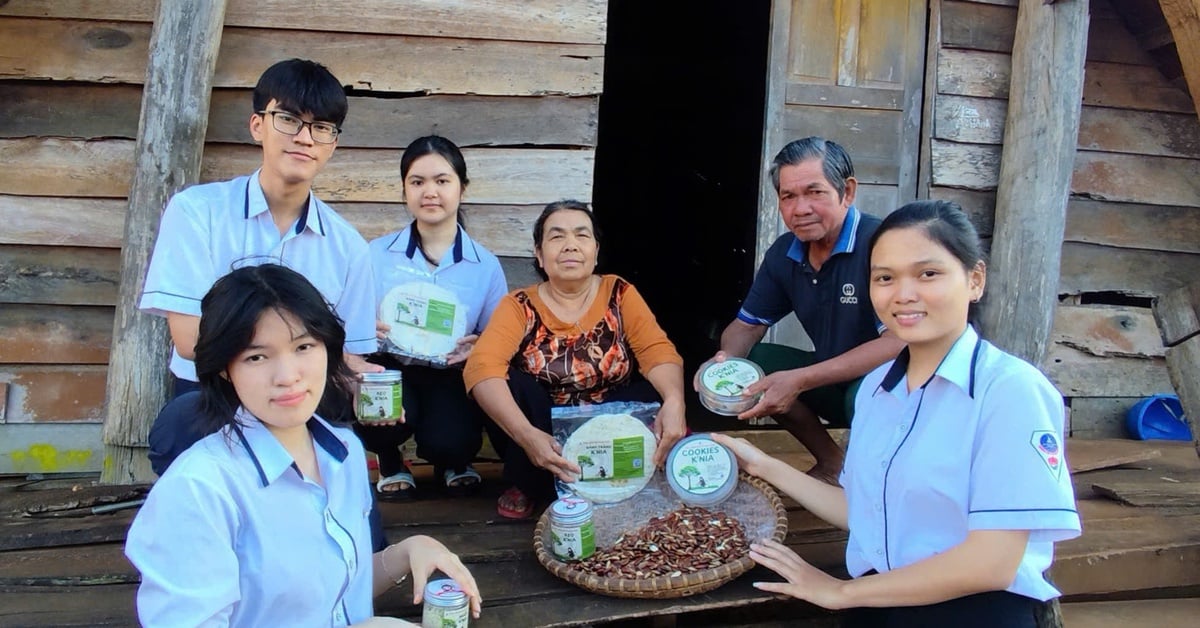






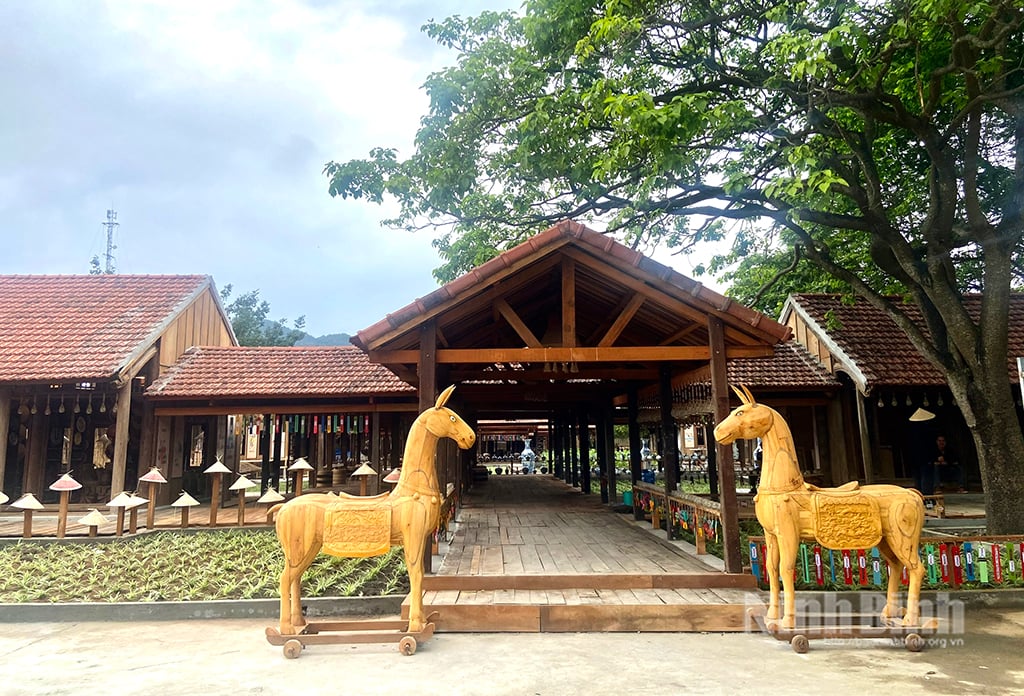







































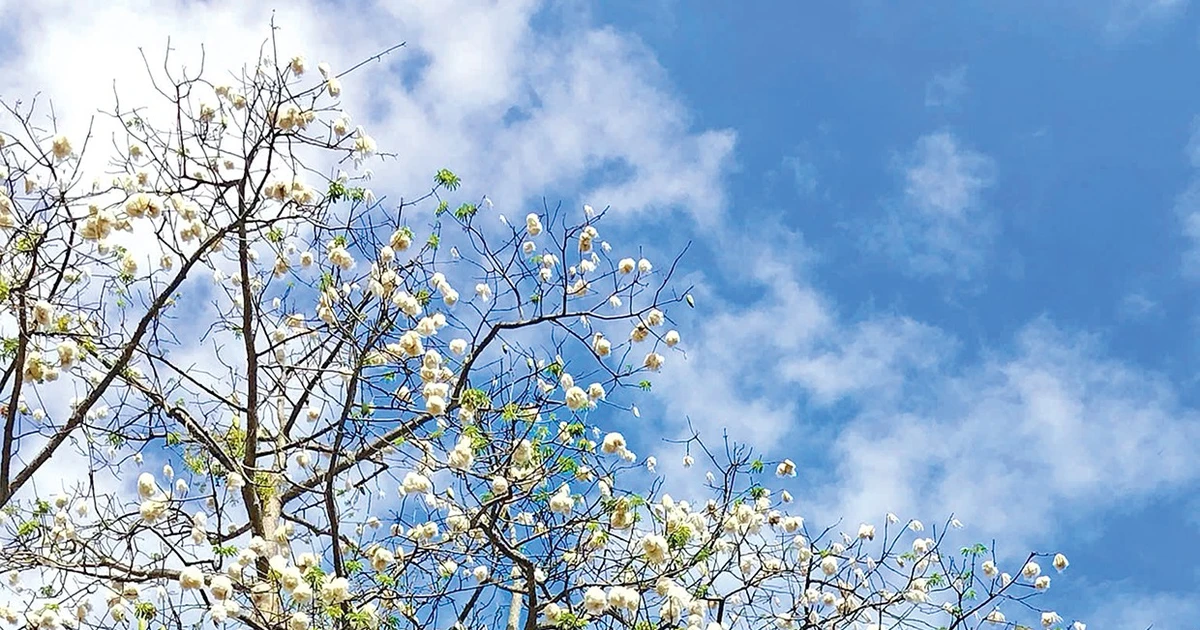















Comment (0)